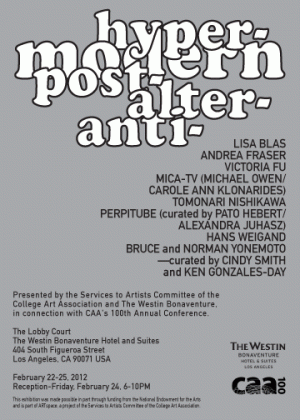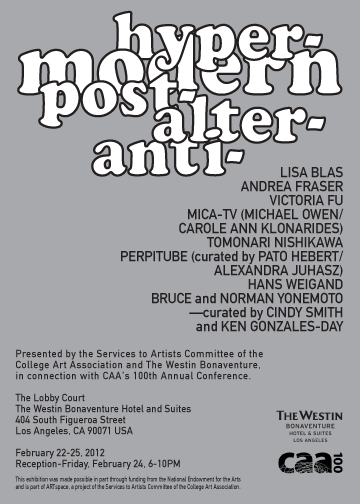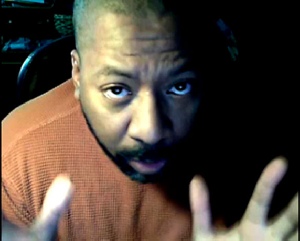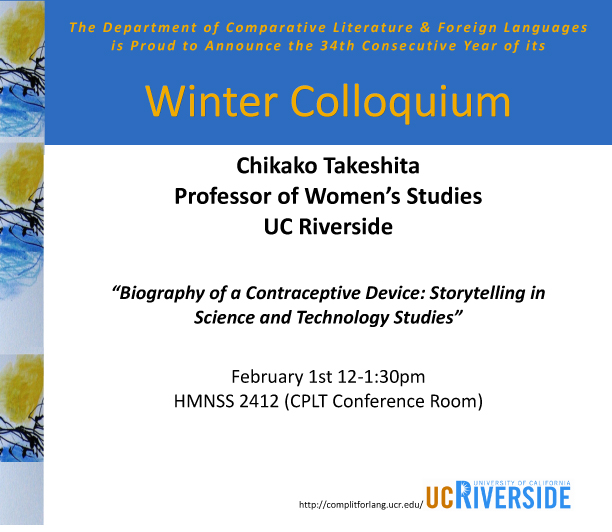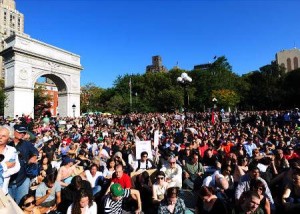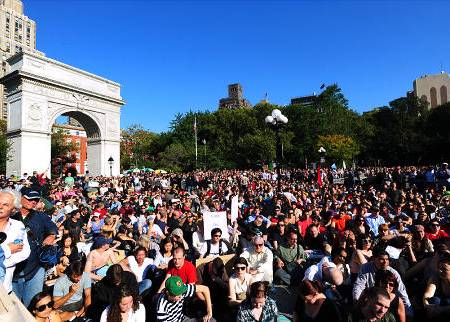Posts from the ‘general digital cultures’ Category
LACE presents Now he’s out in public and everyone can see, a new 18 channel video installation by artist Natalie Bookchin on view 8 March – 15 April, 2012.
Now he’s out in public and everyone can see weaves together found fragments from online video diaries in which vloggers recount a series of media scandals involving African American men. The multiple stories, originally circulated and enflamed by networks of corporate media gone viral, intersect around themes of racial and class identity and explore popular attitudes, anxieties, and conflicts about race. Bookchin’s work creates a critical context for otherwise isolated and scatter-shot online voices, drawing links, making connections, and locating tropes between individual rants and responses. Where the typical viewer of online video is a single person in front of her screen, the installation produces an active social space where multiple viewers navigate through a media environment, piecing together a fragmented and layered narrative told across space and time.
A major new work by Bookchin, Now he’s out in public and everyone can see was developed over the past two and a half years and is part of a larger body of work in which Bookchin repurposes videos made and circulated online, giving new social shape and form to individual expression. This newest project is spatially and conceptually complex, weaving together many more videos, sounds, voices, narratives, and perspectives into three-dimensional space. This further evolution of form reflects and explores the mix of struggles, conflicts, and harmony in some of the critical stories we as a society are telling today about who we are, and what we aspire to be, and represents a significant step in Bookchin’s practice.
—
Our recent guest, artist Natalie Bookchin, will present a new work called “He’s Out in Public” at LACE in Hollywood. Bookchin uses the massive archive of self-expressive texts on youtube, vimeo, and other social video networking sites to render dynamic orchestrations of sociability and networked expression, exploring the problematics and possibilities of baroque public intimacy. Here are the details about the show and a link to the website with more information about the project:
Opening reception: Thursday, March 8 8-10pm . Show runs March 8 to April 15 .
LACE is located at 6522 Hollywood Blvd. Los Angeles, CA 90028 . phone 323.957.1777
More details about “He’s Out in Public”
The Comparative Literature department Winter Colloquium is initiating interdisciplinary discussions around narrative discourse and research from a variety of approaches. Next week we are hosting a lecture that might be of interest to CDHers. Dr. Takeshita from the Women’s Studies department is speaking about “Storytelling in Science and Technology Studies.” We would be happy to welcome any visitors for whom this is helpful for ongoing research.
Details are as follows:
Weds, Feb 1 . 12-1:30 pm . HMNSS 2412 (Comp Lit Conference Room). Please see the flier below.
Last week Apple announced a free download of its “book authoring” software for iBooks, “iBook Author” – the PR is at
http://www.apple.com/ibooks-author/
iBook Author appears to be an updated, more graphical and better integrated version of the free app authoring software tools for developers Apple has offered for a couple of years now, but that haven’t yet been well suited for more general users. It requires OSX 10.6.8, to which many Mac computers older than 5 or 6 years can’t be upgraded (if you have a Core Duo instead of a Core 2 Duo, for instance, you’re out of luck). Reviews are early and tentative and not worth linking to here as yet. But according to one report, the iBook Author format is proprietary instead of aimed at supporting open authoring of “digital book” formats, so the usual complaints are already flowing.
http://www.zdnet.com/blog/bott/how-apple-is-sabotaging-an-open-standard-for-digital-books/4378
Generally, if you want to take full advantage of proprietary features of a specific hardware/software platform, you’re likely to have a problem meeting “open” compatibility standards to some meaningful degree. So that complaint is hardly surprising.
But the pitch Apple is making is not to pre-empt open standards for “digital books” (yuck!) per se, and rather to prime educational multimedia publishing with better support for (of course) iPad-oriented educational multimedia (shades of Hypercard!), for educational markets. I’ll be upgrading to a new laptop soon (yes, my MacBook is that old!) and will be checking the software out soon. I’ll keep you posted.
Recently, I’ve been reading a number of articles talking about key concerns in digital humanities scholarship, especially concerning the current and potential collaborative/interdisciplinary nature of this work. There were three really terrific pieces in the recent edition of the MLA’s annual publication, Profession, including one by Steven Anderson and Tara McPherson from USC, addressing the challenges that non-traditional engagements in digital scholarship present for those working in traditional academic environments. I wanted to share one blog that includes some podcasts of this type of discussion as it’s relevant for all of us, regardless of our specific research areas.
This link is from Dan Cohen, an Associate Professor in the Department of History and Art History at George Mason University and the Director of the Roy Rosenzweig Center for History and New Media. It includes a recent presentation at the Scholar’s Lab at the University of Virginia. I look forward to discussing this with you all in the future!
I saw this story today about how Amazon has started a “Lending Library” for Kindle Users. As the article explains, this service is only open to kindle users with a Prime Membership, complicating notions of socio-economic classes associated with the use of lending libraries, and maybe this is something studies of digital (as compared with physical) libraries could look into. In the meantime, though, I think this development could be of interest to anyone working in library studies, since it expands the digital library-as-archive into the library-as-lending/borrowing-space.
This Sunday morning panel has two of our members and four relevant presentations ….
http://www.pamla.org/2011/sessions/comparative-media
Thanks to Eddie Eason for sharing this excellent story from The New York Times about the Occupy Wall Street protests.
http://www.nytimes.com/2011/10/16/sunday-review/wall-street-protest-shows-power-of-place.html?_r=3&emc=eta1
The NY Times has reported that computer gaming is one of the most subsidized US industries. A summary of the article appears at GamePro and once there you can follow the link beyond the NY Times paywall.
http://www.gamepro.com/article/news/222833/video-games-one-of-the-most-highly-subsidized-industries-in-the-u-s-thanks-to-tax-breaks/

